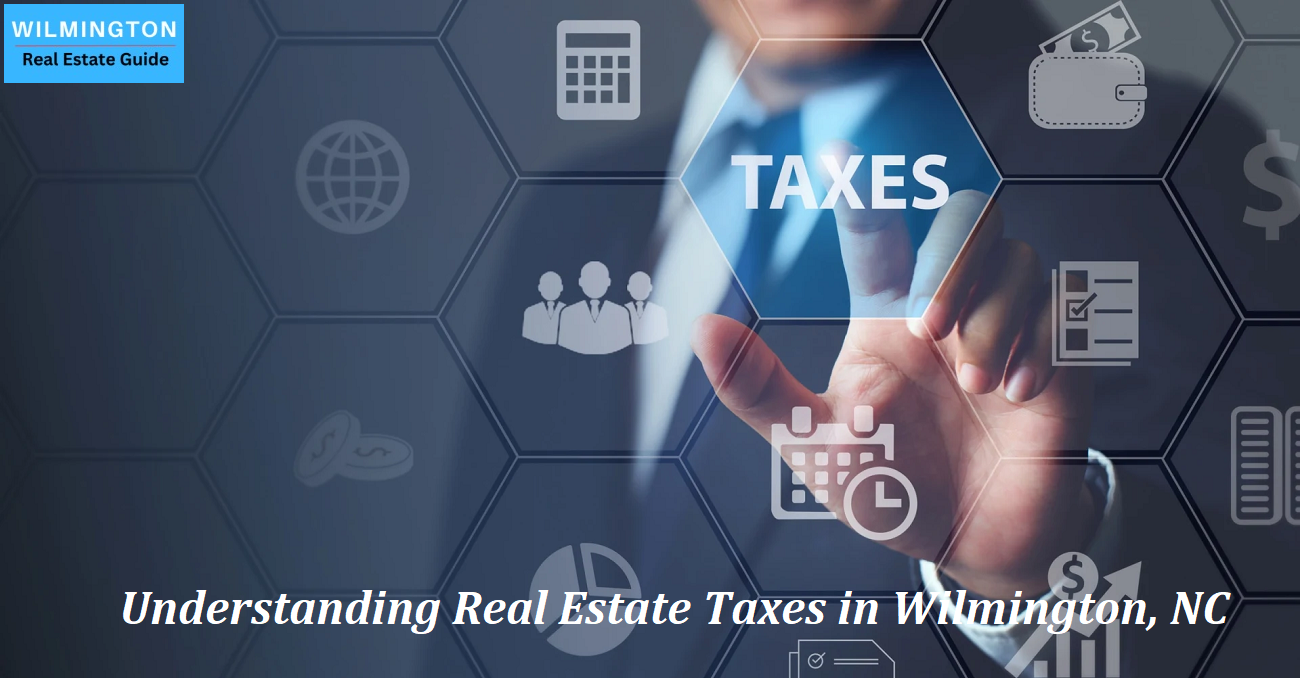
Understanding Real Estate Taxes in Wilmington, Nc
Welcome to the Wilmington Real Estate Guide, your go-to source for all things related to real estate in Wilmington, North Carolina. In this comprehensive blog, we will delve into the intricacies of real estate taxes in the beautiful coastal city of Wilmington. Whether you are a homeowner, a prospective buyer, or a real estate enthusiast, understanding the tax landscape is crucial for making informed decisions.
Wilmington, NC, is a city known for its stunning beaches, historic charm, and a vibrant real estate market. However, like any other place, Wilmington has its own set of real estate taxes that homeowners and property investors need to be aware of. From property taxes to other local levies, we will guide you through the complex world of real estate taxation in Wilmington.

Section 1: The Basics of Real Estate Taxes
Before we dive into the specifics of Wilmington's real estate taxes, it's essential to understand the basic concepts.
1.1 Property Taxes
Property taxes are one of the primary sources of revenue for local governments. In Wilmington, property taxes are collected by the New Hanover County Tax Department. These taxes fund essential services like schools, public safety, and infrastructure.
The property tax rate in Wilmington may vary depending on your location within the city, and it's assessed annually. To find out your specific property tax rate, visit the New Hanover County Tax Department's website or consult with a local real estate expert.
1.2 Property Valuation
The property's assessed value is a critical factor in determining property taxes. The assessed value is the value assigned to your property by the tax assessor, which serves as the basis for calculating your property tax bill. The assessed value can change over time based on property improvements, renovations, and market conditions.
Section 2: Wilmington Real Estate Tax Rates
Understanding the specific tax rates in Wilmington is vital for budgeting and financial planning. Here, we will outline the primary tax rates you should be aware of.
2.1 New Hanover County Property Tax Rate
New Hanover County, where Wilmington is located, sets its own property tax rate. The rate can fluctuate from year to year based on the county's budgetary needs. It is important to stay informed about the current tax rate as it directly affects your property tax liability.
2.2 City of Wilmington Property Tax Rate
In addition to county taxes, the City of Wilmington also assesses property taxes. The city's tax rate may differ from the county's, and it is used to fund local services, such as parks, public transportation, and urban development.
2.3 School District Taxes
A portion of your property taxes goes towards supporting the local school district. Understanding how school district taxes are allocated can help you appreciate the impact of your taxes on education in the community.
2.4 Special Assessments and Fees
Wilmington may also impose special assessments or fees in specific neighborhoods or developments to cover the costs of additional services, such as road maintenance or neighborhood security. These can add to your overall tax liability, so it's crucial to be aware of any special assessments in your area.
Section 3: Property Tax Exemptions and Deductions
Wilmington offers various property tax exemptions and deductions that can help reduce your tax burden. Let's explore some of the most common ones.
3.1 Homestead Exemption
The Homestead Exemption is available to homeowners who use their property as their primary residence. This exemption can provide significant savings on property taxes.
3.2 Senior Citizen Exemption
If you are a senior citizen, Wilmington may offer tax exemptions or deductions for individuals of a certain age. The eligibility criteria and the extent of the exemption can vary, so it's advisable to check with local authorities for specific details.
3.3 Veteran and Military Exemptions
Wilmington appreciates the service of veterans and active-duty military personnel. There may be property tax exemptions or deductions available to those who have served in the armed forces.

Section 4: Property Tax Assessment and Appeals
Understanding the property tax assessment process is essential, as it affects the amount you owe in taxes. Here's what you need to know about the assessment and appeals process.
4.1 Assessment Process
The tax assessor's office in New Hanover County is responsible for determining the assessed value of your property. They consider various factors, such as property size, location, and improvements when assessing your property's value.
4.2 Appealing Your Property Tax Assessment
If you believe that the assessed value of your property is inaccurate, you have the right to appeal the assessment. The appeals process can be complex, so it's advisable to consult with a professional to guide you through the process.
Section 5: Property Taxes and Real Estate Investment
Property taxes play a significant role in real estate investment decisions. Whether you are considering purchasing an investment property or renting out a property in Wilmington, understanding the tax implications is crucial.
5.1 Rental Property Taxes
If you own rental properties in Wilmington, you'll need to account for rental income when filing your taxes. Additionally, you can deduct eligible expenses related to your rental property, which can help lower your tax liability.
5.2 Capital Gains Taxes
Selling a real estate investment in Wilmington can lead to capital gains taxes. Understanding how these taxes work and strategies for minimizing your tax liability can be financially beneficial.
Section 6: Property Taxes and Homeownership
For homeowners in Wilmington, property taxes are a regular financial obligation. We'll explore how property taxes affect homeowners and share some tips for managing them effectively.
6.1 Budgeting for Property Taxes
Incorporating property taxes into your monthly budget is essential to ensure you can meet your financial obligations without unexpected surprises.
6.2 Property Tax Escrow
Many homeowners choose to have their property taxes paid through an escrow account, which is managed by their mortgage lender. This can simplify the process of paying property taxes and ensure that you stay current with your payments.
6.3 Tax-Related Financial Planning
Working with a financial advisor or tax professional can help you develop a strategy to optimize your financial situation, taking property taxes into account.
Section 7: Resources for Wilmington Real Estate Taxes
Navigating the world of real estate taxes in Wilmington, NC, can be complex. Here are some valuable resources to help you stay informed and make informed decisions.
7.1 New Hanover County Tax Department
The official website of the New Hanover County Tax Department is an excellent resource for up-to-date tax rates, forms, and contact information for tax-related inquiries.
7.2 Local Real Estate Professionals
Wilmington has a wealth of experienced real estate professionals who can provide guidance and advice on property taxes and their impact on real estate transactions.
7.3 Legal and Financial Advisors
Consulting with attorneys, accountants, and financial advisors with expertise in real estate can help you navigate the intricacies of property taxes and investments.
Conclusion
Understanding real estate taxes in Wilmington, NC, is a crucial aspect of homeownership and property investment. By arming yourself with knowledge about property tax rates, exemptions, and the assessment process, you can make informed decisions that positively impact your financial well-being. Whether you're a homeowner or a real estate investor, the Wilmington Real Estate Guide is here to help you navigate the ever-changing landscape of real estate taxes in this beautiful coastal city. Stay informed, stay prepared, and make the most of your Wilmington real estate experience.
Appreciate the creator